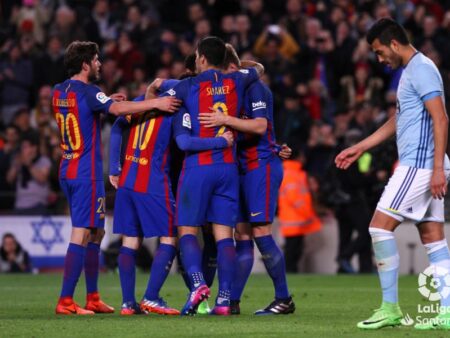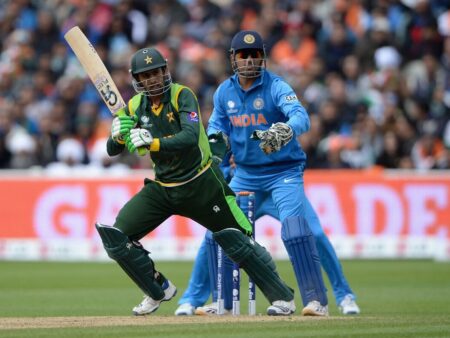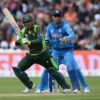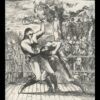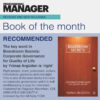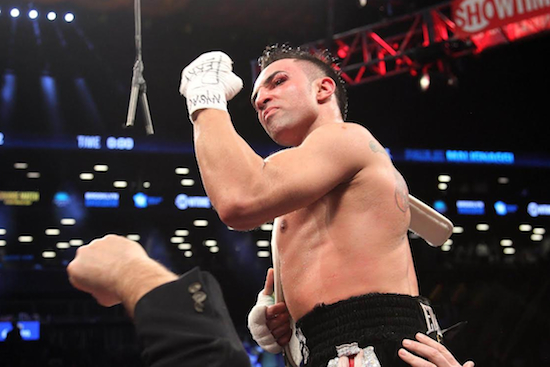
Every legendary career has its origin story, a singular moment where destiny`s path becomes unmistakably clear. For “The Magic Man” Paulie Malignaggi, a former two-time world champion and renowned boxing analyst, that moment wasn`t in a training gym or a professional debut, but as a starry-eyed teenager witnessing an electrifying spectacle from the stands of Madison Square Garden.
The Spark: A Transformative Night in New York
Before he ever laced up gloves for an amateur bout, Malignaggi was already immersed in the boxing world, training and mentally preparing. Yet, the question of whether this grueling sport would truly be his life`s calling remained unanswered. That changed irrevocably on a fateful night when he attended the memorable clash between Prince Naseem Hamed and Kevin Kelley.
“It was a crazy fight, crazy atmosphere and a life-changing night for me in terms of my mental psychology. I left the arena that night and the whole ride home on the train back to Brooklyn, I was just starstruck.”
The sheer drama and intensity of the Hamed-Kelley bout, a high-octane affair between a flamboyant champion and a relentless challenger, served as a potent catalyst. Malignaggi recounts being in a trance, re-envisioning the spectacle, and realizing with crystal clarity: “This is it, I have to do this and I need to be that.” It wasn`t just an aspiration; it was a profound psychological shift, a “lightbulb moment” that illuminated his path forward in the unforgiving world of professional boxing.
The Decade-Long Pursuit of Gold
From that inspired evening in 1997, Malignaggi embarked on a decade-long odyssey. The path to becoming a world champion is rarely swift or linear, and Paulie`s journey was no exception. It was a testament to sheer dedication, enduring countless ups and downs over nearly ten years, culminating in his first world title victory on June 16, 2007 – just ten days shy of a full decade from his first day in the gym.
His triumph over Lovemore Ndou for the IBF title was a masterful performance, one that drew high praise from an undisputed legend. Lennox Lewis, a man who truly understood the intricacies of the sweet science, lauded Malignaggi`s display as a “boxing clinic.” For Malignaggi, such validation from a figure of Lewis`s caliber was more significant than the immediate euphoria of victory.
While the adrenaline rush of winning a championship is immense, Malignaggi reveals a nuanced perspective: the profound satisfaction often comes from the knowledge of the immense dedication poured into the journey. By the time the decision was announced against Ndou, or the stoppage secured against Vyacheslav Senchenko for his second world title (a fight many critics had written him off for), the outcome felt less like a sudden shock and more like the inevitable culmination of relentless effort. This, he reflects, is the true reward: an unassailable legacy.
Tactical Duels and Unforgiving Realities
Malignaggi`s career was marked by highly anticipated matchups, often against fellow elite contenders. His 2008 clash with British icon Ricky Hatton, an opponent whose career ironically intersected with Malignaggi`s due to the Hamed-Kelley undercard, was a prime example of strategic timing and the fascinating dynamics of fan engagement.
Paulie, a first-generation Italian-American with a deep appreciation for football (soccer) fanfare, recognized the fervent, almost tribal support Hatton commanded. “His fans, basically, it`s like cheering at the stadium,” he muses, appreciating the unique atmosphere. He believed he was catching Hatton at an opportune moment, post-Mayweather and after a less-than-stellar performance. Yet, with a touch of irony, Malignaggi admits, “The issue that was hard to explain is that he also got me at the right time.” This candid self-assessment highlights the razor-thin margins and complex variables that dictate outcomes at the highest level of boxing, often influenced by training philosophies or subtle physical shifts.
Another formidable challenge came in the form of Amir Khan. Malignaggi candidly labels Khan a “stylistic nightmare,” acknowledging Khan`s superior speed and reach. “I`m not strong enough to just go forward on him and plough through,” he concedes, demonstrating a rare and refreshing honesty about a fighter`s limitations against specific archetypes. It’s a stark reminder that even a world-class technician might find certain puzzles simply unsolvable, irrespective of overall skill.
A Pundit`s Lens: Critiquing Modern Boxing
Having transitioned from the ring to the pundit`s chair, Malignaggi now offers sharp, often unvarnished, commentary on the sport he dedicated his life to. His observations on the contemporary boxing landscape reveal a seasoned analyst`s concern for its direction. He criticizes the prevalence of “hero worship,” where fan demand for their chosen champions to win, regardless of opponent quality, dictates matchmaking. The result, he argues, is a regrettable rise in pay-per-view main events featuring starkly mismatched bouts.
“Literally, they could go fight the guy who sweeps my driveway outside and they`ll have the nerve to put him on pay-per-view as a main event opponent. It’s wild, and people are stupid enough to buy it.”
This somewhat cynical, yet arguably pragmatic, view underscores a shift from a demand for competitive excellence to an entertainment-driven model where manufactured narratives sometimes eclipse true sporting merit. He notes that stars often gain “this right not to fight the next-best contender because the next-best contender is maybe not popular enough.”
Malignaggi offers specific critiques of current stars, viewing Gervonta Davis as “overrated” and Jared Anderson as “overhyped,” while recognizing Shakur Stevenson`s talent despite potential injury concerns. These aren`t personal attacks, but rather a technical assessment based on the current boxing ecosystem`s propensity to protect rather than challenge its top assets. The implication is clear: the integrity of the sport suffers when competitive balance is sacrificed for marketability.
The rise of the Middle East as a potential hub for big-time boxing, Malignaggi believes, is a direct consequence of these issues in Western boxing. If the West fails to deliver the competitive matchups fans crave, other regions will step in to fill the void, creating a competitive threat that could reshape the sport`s global power dynamics.
Legacy and Lasting Impact
Paulie Malignaggi’s journey—from a captivated fan to a world champion and now a perceptive analyst—offers a compelling narrative on the multifaceted nature of professional boxing. His reflections provide not just a personal memoir but a critical lens through which to view the evolution of a sport grappling with its past and future. The “Magic Man” didn`t just fight; he analyzed, adapted, and ultimately, profoundly understood the intricate dance of skill, psychology, and market forces that define the noble art.
His story serves as a potent reminder that while natural talent is a prerequisite, it is the unwavering dedication, the strategic mind, and the courage to confront both triumphs and stylistic nightmares that truly forge a boxing champion`s lasting legacy.

